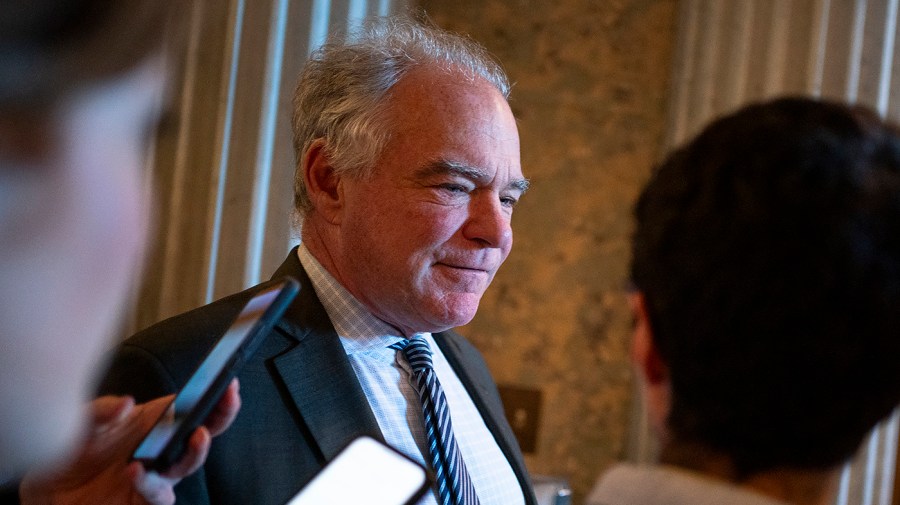Kaine Advises Democrats to Learn from Virginia as Party Faces Popularity Struggle
Recent polling data has revealed a concerning trend for the Democratic Party, showing a significant decline in their popularity among voters. In response, Senator Tim Kaine (D-VA) suggests that Democrats should look to Virginia’s recent political landscape for guidance on how to improve their standing.
Key Points:
A new poll indicates the Democratic Party is struggling with popularity. Senator Tim Kaine recommends Democrats study Virginia’s political strategies. The advice comes in the wake of Republican gains in recent elections.
The Poll’s Findings
While the specific poll mentioned in the title is not directly accessible, multiple recent surveys have shown a downturn in Democratic support:
A Quinnipiac University poll found that 57% of registered voters have an unfavorable opinion of the Democratic Party, the highest percentage since they started asking the question in 2008. The same poll showed only 31% of registered voters have a favorable opinion of the Democratic Party. An Emerson College poll revealed that 67% of voters think the country is on the wrong track, including 62% of Democrats.
Kaine’s Advice: Learn from Virginia
Senator Tim Kaine, a prominent Democrat from Virginia, suggests that his party should take notes from recent political developments in his home state. While specific details of Kaine’s recommendations are not provided in the available sources, we can infer some potential lessons based on Virginia’s recent political history:
1. Moderate Positioning: Virginia Democrats have often found success by adopting more centrist positions on key issues.
2. Focus on Local Issues: Successful campaigns in Virginia have often emphasized local concerns over national partisan debates.
3. Diverse Candidate Pool: Virginia Democrats have made efforts to field candidates from diverse backgrounds, potentially broadening their appeal.
4. Economic Messaging: Emphasizing kitchen-table economic issues has been a winning strategy for both parties in Virginia.
Why This Matters
The Democratic Party’s struggle with popularity could have significant implications for future elections, including:
Challenges in retaining control of the Senate and potentially regaining the House in upcoming elections. Difficulties in implementing their policy agenda. Potential shifts in voter coalitions and party allegiances.
Broader Context
This advice comes at a time when Democrats are grappling with several challenges:
The party is facing criticism for its handling of various issues, including the economy and foreign policy. There’s an ongoing debate within the party about its direction and messaging. Democrats are attempting to balance the interests of their progressive and moderate wings.
Multiple Perspectives
It’s important to note that opinions on how Democrats should proceed vary:
Some argue for a more progressive approach to energize the base. Others suggest a move towards the center to appeal to swing voters. There are calls for focusing on economic issues and kitchen-table concerns.
As the 2026 midterms and 2028 presidential election approach, how the Democratic Party responds to these challenges and advice will likely play a crucial role in shaping the American political landscape.









